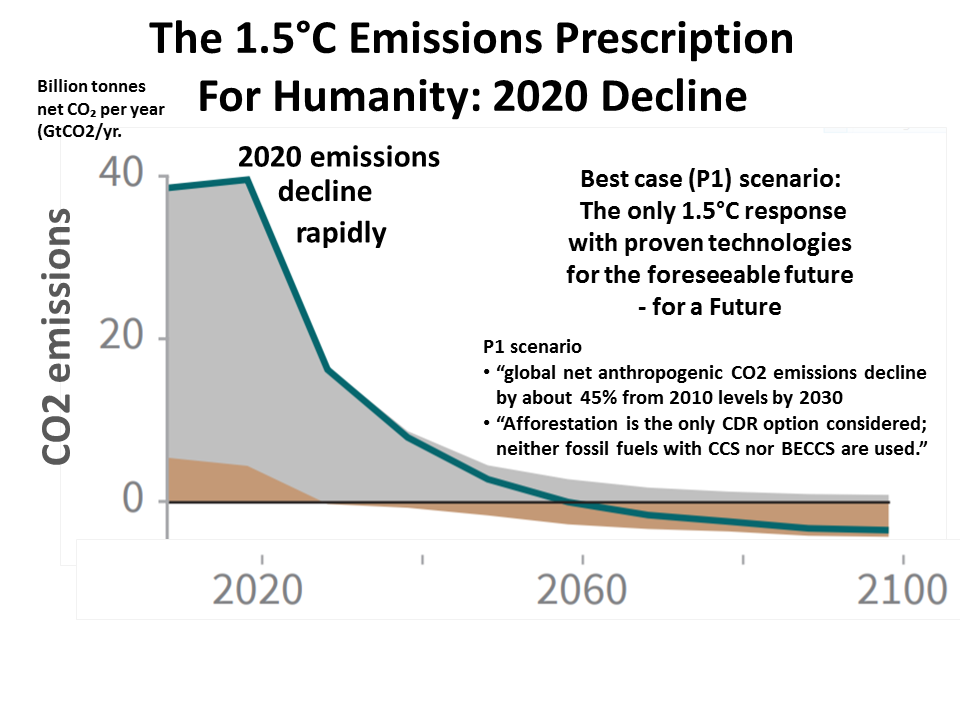GLOBAL CLIMATE CHANGE EMERGENCY HEIGHTENED
Still no progress for a new UN treaty to put emissions decline
UN emissions measures now only 'Intended Nationally Determined Contributions'
The 2015 Paris UN Climate Treaty
Several years of international negotiations under the UN climate convention Secretariat did not resolve the deadlock between the most vulnerable nation Parties and the large industrial economies together with Middle East oil producing states. The negotiations towards a new UN treaty were put on hold with a deadline set for an agreement in Paris December 2015. A run-up conference to Paris was the December 2014 Lima Peru climate conference, which was intended to produce an agreed to draft text for the 2015 Paris conference. An agreed text was not arrived at.
A mixed group of nations did succeeded in getting aspects of the 2014 CAN Int. emergency response as options into the draft for Paris. This would mean a rapid emergency emissions response from 2015, for at a global warming limit under 1.5C aimed at zero carbon emissions from 100% renewable energy and the end of the fossil fuel era by 2050.
However a few industrialized (incl. USA| and Canada continue to stubbornly block any progress for a new treaty that could switch emissions into a steady decline. They say there will be no legally binding treaty and individual States will set their domestic UN 'contributions'. To satisfy these nation Parties to the Convention, the original legally binding commitments under the Convention have been watered down to Intended Nationally Determined Contributions. This is no change from the situation we have today.
That leaves the world heading inexorably toward planetary catastrophe, with today's youth having no chance to deal with it and future generations struggling to live on a rapidly declining planet.

Annual UN climate conferences have failed to produce any sort of agreement to reduce emissions — not even a target year for a so-called global emissions "peak" to reverse the current increasing rate of emissions. No new treaty is in the wings.
All the pledges made so far would lead to a warming of 4.5ºC by 2100 (Climate Interactive) and that is a full eventual warming of at least 6ºC after 2100 due to climate system inertia.
"Without adaptation, local temperature increases in excess of about 1ºC above pre-industrial are projected to have negative effects on yields for the major crops (wheat, rice and maize) in both tropical and temperate regions. With or without adaptation, negative impacts on average yields become likely from the 2030s" (IPCC AR5 WG2 2014).

With world energy projections to 2030 planned to be 80 percent fossil-fuel-based — with even more coal and tar sands oil "in the pipe" — the world remains on course for global climate catastrophe.
Humanity is now facing the "oblivion" that the UN's Ban Ki-moon warned in 2009 would be the result if there was no new, strong, binding UN agreement to replace the Kyoto Protocol, whih expired in 2012.
Nothing substantive has changed since the 2009 failed Copenhagen Climate Conference. We are left with the US-led so-called Copenhagen Accord. This accord has only one target (2ºC), which we now know is a target for planetary catastrophe See the 2°C target.
The 2°C target, a so-called danger limit, has never been a science-based limit. It is a policy compromise that was arrived at by the European Union in 1996. Even then the EU stated that a global average temperature increase of 2°C was not safe and that it did not "eliminate the risk of runaway climate change" but "minimized it."
This situation is truly incredible, especially with all the severe climate change impacts that have occurred over the last few years, including more extreme heat waves, droughts, violent storms, and floods. The 2010 Pakistan flooding, which the UN said was global climate change-induced and the worst disaster the world has ever had to face, impacted more than 20 million people. These floods hit the country's best agricultural regions with large food production losses.
Significantly, Northern Hemisphere regions (including the US) have recently suffered some of the worst losses of crop production from heat, drought, fires and floods. No new treaty will mean more of these threats to our health and food security in the foreseeable future.
Return from No New Treaty to Climate Change Emergency
Medical Response Homepage
The 2016 Planetary Health Alliance (2019 VIDEO)
Video Dr. H. Montgomery's 2018 lecture says it all

Lancet Countdown (Nov)2018 Report for policy makers
2017 WHO 5th Climate & Health Summit
2014 Lancet From Public to Planetary Health:
A Manifesto
2014 BMJ Climate Change & Human Survival
2014 BMJ Climate Change
is a Health Emergency
IPCC 5th Assessment
Climate & Health Council




